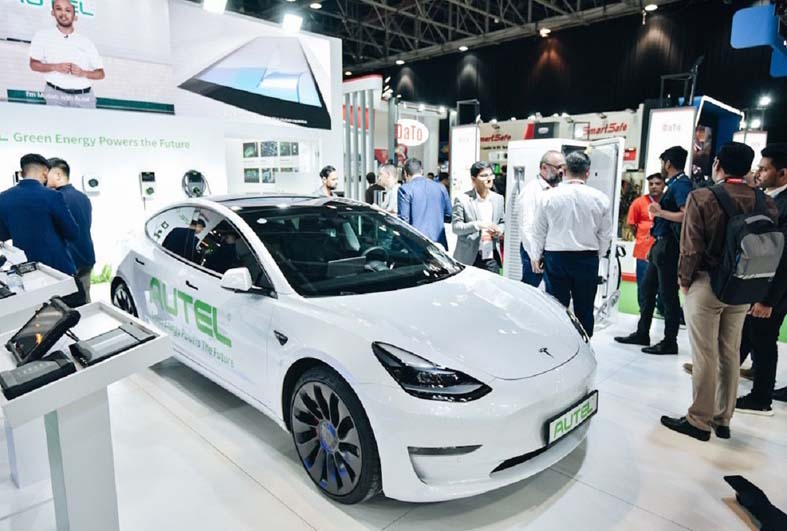A leading expert in fire safety and investigation training has highlighted the need for more education and information surrounding electric vehicles (EVs) ahead of Automechanika Dubai, which takes place next month from 2-4 October at the Dubai World Trade Centre
The comments come as the global sales of EVs in 2023 are expected to top 14 million, a 35% increase on the previous year, according to the International Energy Agency. Furthermore, the UAE government has set a target of 50% of cars on the road within the country to be electric by 2050, with the EV market already making up more than 1% of the overall car market.
“There is no denying EVs are the future, but we must ensure people understand the potential risks. Out of a million electric cars that might be sold in the GCC, there’s going to be a very small percentage that may encounter problems. But if it's in your house, in your garage, underneath your block of apartments, then that problem can lead to major issues. We need to see manufacturers upping their ante and dealers ensuring customers have a full overview of what they are purchasing and how to take care of the car properly,” said Richard Dunbar, ex-fire chief and now a consultant and trainer in fire, health and safety for alternative fuelled vehicles.
One key area of concern is ensuring first responders to EV fires are prepared and able to deal with the associated issues surrounding the lithium-ion battery. According to a national survey conducted in the United States earlier this year by Elsevier, the global information analytics business, more than 40% of 1,000 first responders surveyed reported never receiving EV safety training, with paramedics or Emergency Medical Services (EMS) most likely to have not received any form of EV training.
According to Dunbar, the emergency services must have an in-depth understanding of the potential risks associated with EVs.
“When an EV starts to burn, it can go into thermal runaway, and as a result, we see flames coming out of it like a jet. Furthermore, cylindrical cells are moving at just 30 metres per second slower than a nine-millimetre bullet being fired. So, for first responders, it’s about understanding how to approach and deal with that situation.
“If you hear popping or hissing and see white, for example, this isn’t smoke. It’s ignitable vapour. If you breathe that in, it turns into hydrofluoric acid and can seriously impact the respiratory system. If you consider one kilowatt hour battery will produce up to 6,000 litres of ignitable, toxic vapour and an electric car is anything between 80 and 110 kilowatt-hours, the potential impact could be lethal.
“We need to ensure everyone, from first responders to property developers, understands the potential problems and ensure enough public information is available to mitigate the issues before they happen.”
Dunbar will be hosting the session ‘Electric and alternative-fuelled vehicles are here – are we ready?’ where he will underscore the importance of understanding the assessment of risk, policies and procedures when it comes to recovery, parking transportation, accident, repair, investigation and fires involving EVs.
The session will be part of a new dedicated zone, Innovation4Mobiliy, which will combine product showcases with a series of keynote addresses, panel discussions and roundtable debates analysing the latest technologies and trends and the impact this will have on the aftermarket.
To register for Automechanika Dubai 2023, visit the visitor registration page.






